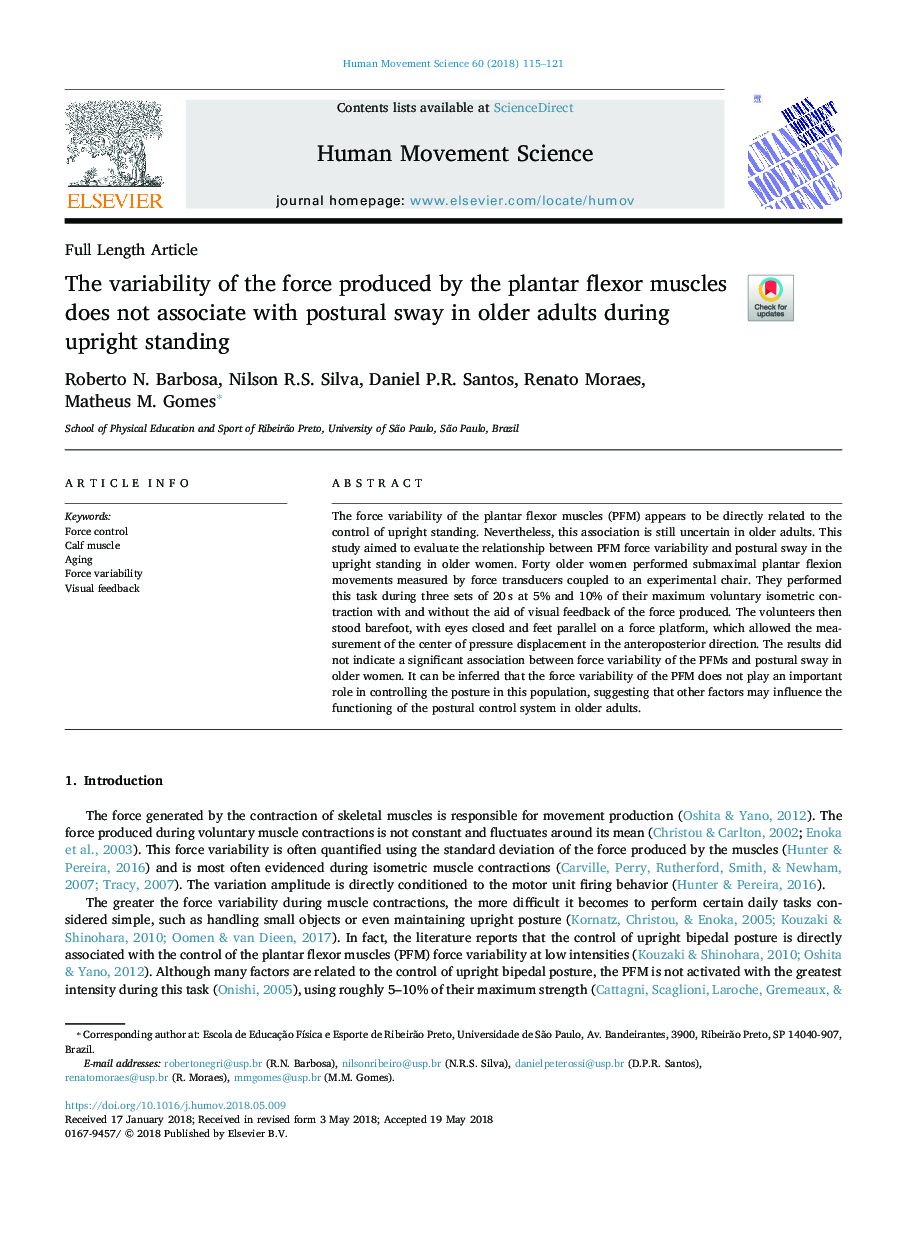| Article ID | Journal | Published Year | Pages | File Type |
|---|---|---|---|---|
| 7290851 | Human Movement Science | 2018 | 7 Pages |
Abstract
The force variability of the plantar flexor muscles (PFM) appears to be directly related to the control of upright standing. Nevertheless, this association is still uncertain in older adults. This study aimed to evaluate the relationship between PFM force variability and postural sway in the upright standing in older women. Forty older women performed submaximal plantar flexion movements measured by force transducers coupled to an experimental chair. They performed this task during three sets of 20â¯s at 5% and 10% of their maximum voluntary isometric contraction with and without the aid of visual feedback of the force produced. The volunteers then stood barefoot, with eyes closed and feet parallel on a force platform, which allowed the measurement of the center of pressure displacement in the anteroposterior direction. The results did not indicate a significant association between force variability of the PFMs and postural sway in older women. It can be inferred that the force variability of the PFM does not play an important role in controlling the posture in this population, suggesting that other factors may influence the functioning of the postural control system in older adults.
Related Topics
Life Sciences
Neuroscience
Cognitive Neuroscience
Authors
Roberto N. Barbosa, Nilson R.S. Silva, Daniel P.R. Santos, Renato Moraes, Matheus M. Gomes,
